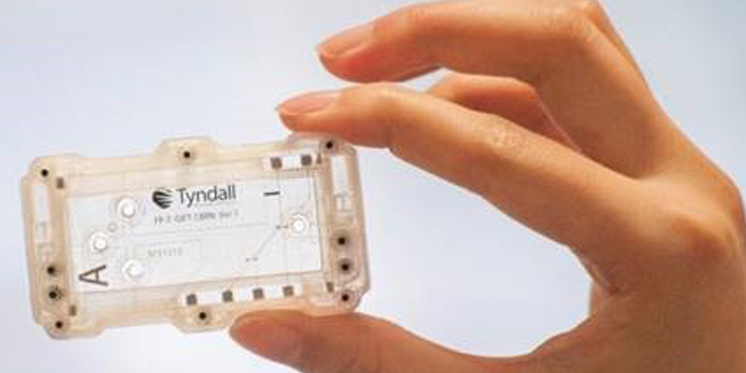In This Section
World’s First Portable CE System for On-site Chemical Analysis and Deployment at CBRN Incidents

A new portable Capillary Electrophoresis (CE) system developed at Tyndall has been successfully deployed at the Generic Integrated Forensic Toolbox (GIFT) project’s chemical exercise in Vilvoorde, Brussels, Belgium, where the on-site detection of an organophosphate (nerve agent) simulant was achieved.
Developed by Dr Eric Moore’s team, the new system is capable of mobile and on-site deployment so that the detection of hazardous chemicals at chemical, biological, radiological and nuclear (CBRN) incidents is no longer dependant on solely testing in a laboratory setting.
The system consists of custom made housing with components either manufactured at Tyndall through the use of 3D printing technology and/or integrated with commercially available devices. The miniaturisation and portability of the CE system are the major advantages of the technology where the forensic team is now able to bring a powerful laboratory technique to the crime/incident scene.
For the GIFT project the team focused on the detection of nerve agents as proof of concept chemical targets. This is the first time that a portable CE system has been available to do chemical analysis in the field and it enables scientists to perform real time testing and analysis – this is a key focus of the GIFT consortium and for the forensic toolbox in general.
The team’s vision is to develop a library of chemical data using the CE system so that the data sent to the toolbox during on-site testing can be compared with the library data in the knowledge base, a match made and the appropriate actions (Risk Assessment, MSDS, SOPs etc.) can be implemented by the command team.
This innovative technology in conjunction with the GIFT toolbox has the potential to significantly impact on the practice of forensic investigation at CBRN incidents and introduce a rapid on-site chemical detection capability that traditional has been laboratory based.
School of Chemistry
Scoil na Ceimic
Contact us
Second Floor, Kane Building, University College Cork, T12 YN60
